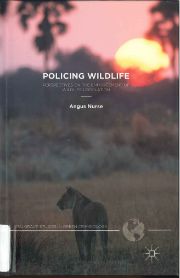Results
| Title | Citation | Alternate Citation | Agency Citation | Summary | Type |
|---|---|---|---|---|---|
| State v. Dicke | 258 Or. App. 678, 310 P.3d 1170 review allowed, 354 Or. 597, 318 P.3d 749 (2013) | 2013 WL 5352271, 258 Or. App. 678, review allowed, 354 Or. 597, 318 P.3d 749 (2013) |
This case is the companion case to State v. Fessenden,258 Or. App. 639, 310 P.3d 1163 (2013) review allowed, 354 Or. 597, 318 P.3d 749 (2013) and aff'd, 355 Or. 759, 333 P.3d 278 (2014). Defendant was convicted of first-degree animal abuse, ORS 167.320, in association with having allowed her horse to become so severely emaciated that it was at imminent risk of dying. On appeal, defendant challenged the trial court's denial of her motion to suppress evidence obtained through a warrantless search of the horse. In affirming the lower court, this court found that the warrant exception that allows officers to assist seriously injured people extends to animals under certain circumstances. Citing Fessenden, this court found that a warrantless seizure will be valid when officers have "objectively reasonable belief, based on articulable facts, that the search or seizure is necessary to render immediate aid or assistance to animals that have suffered, or which are imminently threatened with suffering . . ." |
Case | |
| Chile - Marine mammals - Ley 20293 | Ley 20293 | The cetacean law prohibits the killing, hunting, capturing, harassing, keeping, possessing, transporting, disembarking, preparing, or carrying out any transformation process, as well as the commercialization or storage of any species of cetacean that inhabits or crosses the maritime areas of national sovereignty and jurisdiction in Chile. | Statute | ||
| Shumate v. Drake University | 846 N.W.2d 503 (Iowa. 2014) | Plaintiff Shumate was barred from bringing a dog that she was training, into the classroom and to another school event. Shumate worked as a service dog trainer, while she was a student at Drake University Law School, the Defendant in this case. In 2011, Shumate filed a lawsuit alleging that Drake University discriminated against her as a service dog trainer in violation of Iowa Code chapter 216C. She alleged that chapter 216C, implicitly provided service dog trainers with a private right to sue. The Supreme Court of Iowa held that the statute does not provide service dog trainers with a private right to sue, nor did it include them under the coverage of chapter 216. The Court reasoned that although Shumate trained dogs to assist the disabled, she was not covered because she is not a person with a disability. The Court stated that closely related statutes expressly created private enforcement actions to aid the disabled while chapter 216C does not. Because an implied right of action would circumvent the procedures of the Iowa Civil Rights Act, the Iowa legislature purposely omitted a private right to sue from chapter 216C. The court vacated the decision of the court of appeals and affirmed the district court's judgment dismissing Shumate's petition with prejudice. | Case | ||
| DC - Dogs - § 22-1311. Allowing dogs to go at large. | DC ST § 22-1311 | DC CODE § 22-1311 | The following District of Columbia statute prohibits dogs that the owner knows to be fierce or dangerous, to the danger or annoyance of the inhabitants, from running at large; it also prohibits female dogs in heat to run at large. | Statute | |
| CT - Pet Trust - Chapter 802C. Trusts | C. G. S. A. § 45a-489a | CT ST § 45a-489a | Connecticut enacted its "pet trust" law in 2009. Under the law, a testamentary or inter vivos trust may be created to provide for the care of an animal or animals alive during the settlor's or testator's lifetime. The trust terminates when the last surviving animal named in the trust dies. The trust must designate a "trust protector" who acts on behalf of the animals named in the trust. | Statute | |
| UK - Dog - Breeding of Dogs Act 1991 | 1991 c. 64 |
This Act extends the powers of inspection for the purposes of the Breeding of Dogs Act 1973 to premises not covered by a licence under that Act, thereby enabling local authorities to investigate suspicions that a dog breeding establishment is operating without the necessary license |
Statute | ||
| Animal & Natural Resource Law Review Volume XIX |
Published by the students of Michigan State University College of LawAnimal & Natural Resource Law ReviewVol. |
Policy | |||
| Hastings v. Sauve | 94 A.D.3d 1171 (N.Y.A.D. 3 Dept., 2012) | 2012 WL 1129275 (N.Y.A.D. 3 Dept., 2012); 941 N.Y.S.2d 774 (2012) | Plaintiff motorist was injured after hitting a cow that had wandered onto the highway, and sued owner for negligently failing to confine cow. The Supreme Court held that injury claims could only proceed under strict liability theory based on owner's knowledge of animal's vicious propensities. There was no evidence that cow had a vicious propensity, or that owner knew of propensity, thus, owner was not liable. This order was Reversed by Hastings v. Sauve , 2013 WL 1829834 (N.Y., 2013). | Case | |
| AR - Hunting, remote - 002.00.1-05.08. Prohibited Methods for Hunting Wildlife | AR ADC 002.00.1-05.08 | Ark. Admin. Code 002.00.1-05.08 | This Arkansas regulation prohibits computer-assisted hunting, among other activities. | Administrative | |
| Policing Wildlife |
|
Policy |
